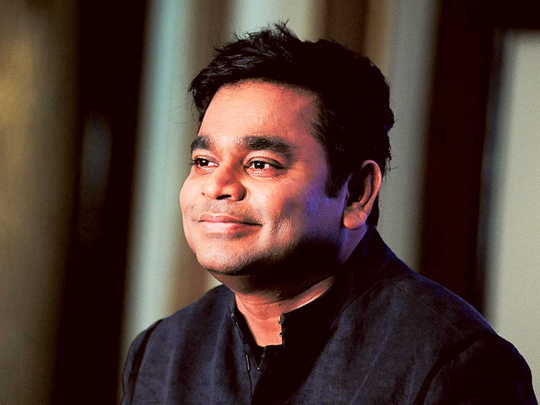
Oscar- and Grammy-winning composer-singer A.R. Rahman, who turned 50 on Friday, was lauded by his peers in the industry.
Rahman is known for his unique meshing of Indian and western sounds, and for introducing new talents in the industry such as singer Sukhwinder Singh, who made his mark in 1999 with the song Chaiyya chaiyya. Singh also sang Jai ho — the Oscar-winning track from Slumdog Millionaire — with Rahman.
He said: “The world has acknowledged his [Rahman’s] genius and I have been fortunate to work with him on numerous occasions. His understanding of music is so vast that he can perhaps capture any mood in one song. Also, the fact that his music grows on you, is a quality all composers should imbibe.”
Versatile singer Sonu Nigam, who has lent his voice for many of Rahman’s compositions like Ishq bina, Hai guzarish, In lamhon ke daaman mein, Saathiya, Khamoshiyan gungunane lagi and Satrangi re, called him, “God’s special child”.
He said: “Everything about him is inspirational. His talent, his composure, his exclusivity, his foresight and moreover how he is protected by the universe because of his detachment to the material things in life... That’s what makes him an icon of this generation.”
It is interesting how Rahman has worked with various genres — be it Indian classical, folk, electronic music or orchestral arrangement — and touched all the right emotional chords through his songs. Be it the naughty Kuchi kuchi rakkamma, or the romantic Ye haseen waadiya, Roja and Tere bina or capturing the vulnerability of a young man through Naadaan parindey, spiritual number Kun faaya kun, and patriotic Maa tujhe salaam (Vande mataram), Rahman has done it all.
Appreciating his contribution to Hindi film music, popular composer Rajesh Roshan said: “His power is in his innovative approach towards music. Taking a bit of risk to create some new melody is his signature [style], and that is what he is acclaimed for. I appreciate it.”
Rahman is also known for collaborating with iconic film directors such as Mani Ratnam, Ashutosh Gowariker, Rakeysh Omprakash Mehra and Imtiaz Ali.
Recalling their collaboration for films, Mehra said: “It is never like we are working together just for a film, but we get connected by spending time together and exchanging ideas. So, that reflects on the creative process of a film later on.
“Whether it is Rang De Basanti or Delhi 6, I shared the story and he interpreted them musically. So, the music became an integral part of the narration.”
Citing the example of the soulful track Arziyan from Delhi 6, Mehra said: “We added the song almost at the end of the album when we were close to ending it. We were looking for a song that conveys the essence of the film, and we weren’t getting it.
“One day, around 5am, he [Rahman] called me, saying, ‘I want you to hear this, I got this tune in my dream’. He played a 37-minute long piece from where we get the song Arziyan — that’s Rahman for you. He thinks about music even in his dreams.
“Music is the extension of his personality. If you want to know about Rahman, you can know him the best through his music.”












